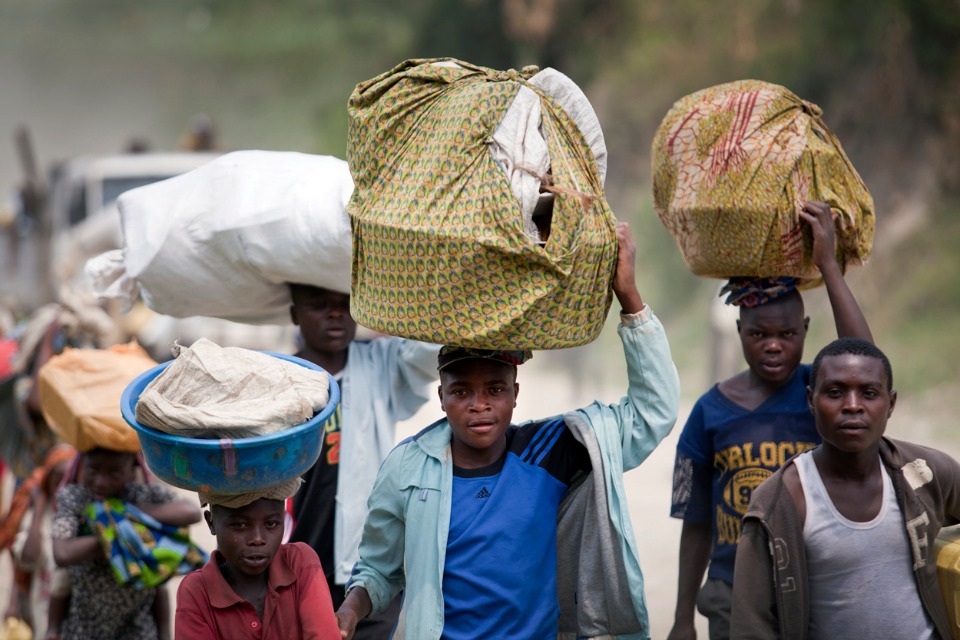'This Council, the international community and the countries of the region must dare to do all they can for the people of the Great Lakes'
Statement by Ambassador Lyall Grant, Permanent Representative of the UK Mission to the UN, to the Security Council meeting on the Situation in the Great Lakes

Thank you Mr President,
And I thank the United States for convening this debate and for the personal commitment that Secretary Kerry has shown by chairing it. It is vitally important that the Security Council maintains its focus on the region at this critical time. I would like to thank the Secretary-General, the Special Envoy Mary Robinson, World Bank President Kim, Commissioner Lamamra and the Foreign Ministers Tshibanda and Kutesa for their briefings this morning.
Mr President,
The Democratic Republic of Congo has been a crucible of conflict for more than two decades. Brutal cycles of violence threaten both national and regional peace and stability. We have seen yet more horrors in the latest cycle of violence, as the M23 militia commit rapes, carry out summary executions and recruit child soldiers. The FDLR – while its threat is much reduced – has also continued to carry out abuses, exploiting the instability created by the M23 rebellion. Despite this latest outbreak of violence, we have an opportunity now to begin a new chapter in the troubled region that ends the peoples’ suffering and brings peace to eastern DRC.
In February countries of the region came together and committed to building peace, under the Peace, Security and Co-operation Framework. Special Envoy Mary Robinson is supporting their efforts. And Resolution 2098 authorises MONUSCO to neutralise and disarm all those armed groups that pose the greatest threat to civilians – not least the M23 and the FDLR. Together these different elements represent a unique opportunity to address the root causes of the conflict in the DRC and to end the cycle of violence once and for all.
Mr President,
We must seize this opportunity with determination and vigour. First and foremost, countries in the region must implement their commitments under the Framework Agreement. The DRC has made a positive start, with the development of a National Oversight Mechanism. Major challenges remain on Security Sector Reform and extending government to the east of the country and both these steps are necessary to bring peace and prosperity to the Congolese people.
But the wider region must also deliver its commitments. That means, above all, that all countries show respect for their neighbours territorial integrity and stop any and all assistance to armed groups. It is a matter of great concern to my government that the latest Group of Experts report refers to continuing external supports for rebel groups in the eastern DRC. The meeting of the signatories at the UN General Assembly in September must produce clear benchmarks to measure progress on all the commitments made in the Framework Agreement.
MONUSCO should play its role in support of national and regional efforts. This Council has given the mission a more robust mandate that will put greater pressure on armed groups. MONUSCO will soon carry out offensive operations informed by the latest military technology, including Unmanned Aerial Systems. This pressure must be accompanied with a demobilisation plan that offers combatants an alternative to fighting. MONUSCO is adapting to developments on the ground and demonstrating a flexibility and responsiveness that other UN Peacekeeeping Missions would do well to emulate.
The United Kingdom stands ready to support all these efforts. We are already providing training to some of the troops that will soon deploy in the DRC. Under our Preventing Sexual Violence Initiative, we are assisting with collection and preservation of forensic evidence, to help bring to justice perpetrators of sexual violence crimes. And we are providing support to peace initiatives in eastern DRC which are fully integrated with the Framework Agreement. All donor support should be aligned with the regional and national benchmarks of the Framework to establish a basis for mutual accountability.
Mr President,
We must stay strong in our pursuit of peace. Gains made are fragile and need unyielding support from within DRC, from the immediate neighbours in the region, and from the international community. We must not squander progress with blame or retribution. Accusations by countries in the region, not backed up by evidence, only undermine our efforts.
When this Council adopted Resolution 2098, the representative from the Democratic Republic of Congo said that his country was “daring to hope”. I can assure him that we are all hoping with him. This Council, the international community and – above all – the countries of the region must dare to do all they can for the people of the Great Lakes and work together to keep our hopes of peace alive.
Updates to this page
-
Added translation
-
Added translation
-
Added translation
-
First published.